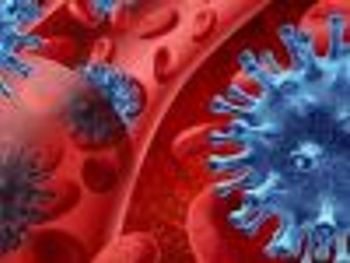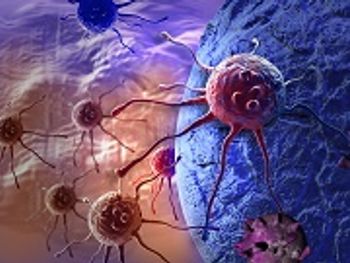
Squamous cell carcinoma carries a transcriptional fingerprint of basal cells.

Squamous cell carcinoma carries a transcriptional fingerprint of basal cells.

Top news of the week in oncology and cancer drug development.

Interference with transcription factor activity may lead to the development of novel disease therapeutics.

Uterine cancers disseminated by surgical device.

Lung cancer demonstration project examines the feasibility of a screening program for veterans.

Combination treatment reduces head and neck cancer deaths by 20%.

Top news of the day from across the health care landscape.

Top news of the day from across the healthcare landscape.

Hypoxic tumor microenvironments influence the fate of disseminated tumor cells.

University of Wisconsin-Madison investigators create a device to improve cancer detection.

Big data could allow physicians to take action before a patient with cancer needs to visit an emergency hospital.

African Americans with breast cancer have a 40% higher death rate than European-Americans.

Top news of the day from across the health care landscape.

Creating meaningful measurements for cancer care has been difficult.

Common diabetes drug changes the biology of cancer cells.

Time of day is an important factor in chemotherapy-induced adverse events.

Top news of the day from across the health care landscape.

Findings may lead to preventative treatments for breast cancer, such as anti-inflammatory drugs.

Keytruda previously granted breakthrough therapy designation as a second-line treatment for patients with bladder cancer.

Keytruda granted priority review as a first- and second- line treatment for bladder cancer.

Top news of the week in oncology and cancer drug development.

Top articles of the week from Specialty Pharmacy Times.

Ninety-three percent of women reported at least 1 adverse event from breast cancer treatment.

Researchers have found that depleting the environment of arginine plus a glutamine inhibitor may treat multiple types of cancer.

Immunotherapy also found to prolong life in patients with bladder cancer.

Young and middle-aged adults with colon cancer are 2 to 8 times more likely to receive postoperative chemotherapy.

Younger patients with colon cancer are more likely to be administered postoperative chemotherapy.

Cancer may be stopped by depriving cells of vital nutrients.

Combination treatment prior to surgery changes the clinical significance of growth factors as potential biomarkers.

Metformin shown to alter metabolic pathways of cancer cells.